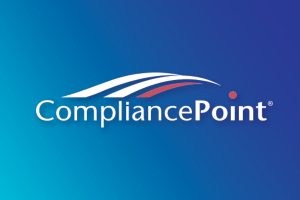Helping Companies Overcome Healthcare Regulatory Challenges
Healthcare organizations, including Covered Entities and Business Associates, face an array of security and regulatory challenges. Legislation including the Health Insurance Portability and Accountability Act (HIPAA), the Health Information Technology for Economic and Clinical Health (HITECH) Act, Promoting Interoperability Program, and the Minimum Acceptable Risk Standards for Exchanges (MARS-E) rules control how you handle and protect patient data. Healthcare organizations are required to assess, remediate, validate, and maintain ongoing compliance activities.
The need for a strong cybersecurity framework goes well beyond regulatory compliance. New and more advanced cyber threats are constantly emerging. Healthcare organizations must implement security controls that account for the ever-changing cyber landscape. A demonstrable commitment to cybersecurity is vital to gaining the trust of your customers and partners and to protecting your organization’s reputation.
Risks of Non-compliance
Ransomware, malware, phishing, and other cyber attacks that can result in major data breaches continue to become more common in the healthcare sector. From 2018-2023, the US Department of Health and Human Services (HHS) Office of Civil Rights (OCR) reported a 256% increase in large breaches reported to OCR involving hacking and a 264% increase in ransomware.
A data breach can be devastating. In 2024, Change Healthcare paid a $22 million ransom after a ransomware attack. The impact was much larger than the ransom payment, hospitals nationwide had to alter patient care and deal with financial strain after the Change attack.
Anthem Inc. paid $16 million to OCR for violating the HIPAA Security and Privacy rules. The violations were discovered in an investigation that followed a cyber-attack that compromised the electronic protected health information (ePHI) of nearly 79 million people.
Key Regulations
Some specific health information privacy requirements and certifications include:
- HIPAA requires healthcare providers/Covered Entities and Business Associates to apply the appropriate administrative, technical, and physical safeguards that ensure the privacy of Protected Health Information (PHI)
- HITRUST requirements focus on protecting ePHI through a comprehensive approach that unifies the NIST, HIPAA & HITECH, ISO 27001, PCI DSS, FTC, and COBIT recognized standards and SOC 2 criteria
- HITECH has tightened breach notification requirements, increased financial liability amounts and established that covered entities are liable for their business associates
- Promoting Interoperability Program requires hospitals and eligible professionals to undergo a security risk analysis and correct any identified deficiencies discovered
- MARS-E sets the minimum set of standards required place focused on the security of computer systems handling patient/healthcare information for healthcare exchanges
Compliance for Healthcare Companies
How We Can Help
Our qualified experts understand the impact healthcare regulatory requirements have on your data collection, transmission, and handling procedures. CompliancePoint knows what it takes to comply with the most pertinent healthcare regulations, including HIPAA and HITRUST. Utilizing expertise and industry-leading technology, our team can walk you through developing and integrating policies, procedures, and security controls that will allow you to reach your compliance goals.
CompliancePoint is a long-term partner that can ensure you maintain compliance and avoid unnecessary risks through continuous monitoring, periodic risk assessments, and other services.
Our customizable services allow you to craft a package that addresses your needs, priorities, and budget.
Let us help you identify any information security risks or compliance gaps that may be threatening your business or its valued data assets. Businesses in every industry face scrutiny for how they handle sensitive data including customer and prospect information.





